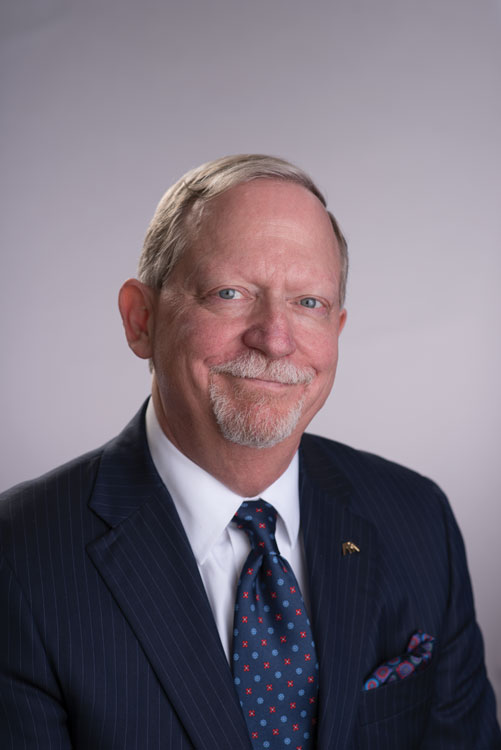Goals for us all: promoting civility and protecting justice

Photo of Bob Carlson by Tom Salyer
The beginning of a new year has historically been a time for people to take stock of their lives and situations. We make resolutions to try to improve ourselves and better our condition.
As we start a new calendar year, a new Congress is also beginning. In the 116th Congress, there will be more than 100 new faces. We will be looking to new and returning members to resolve to bring a new sense of collegiality and civil discourse—a bedrock of democracy—to the institution in order to move our country forward.
In the coming year, the American Bar Association will renew its efforts to work with policymakers to achieve goals important to the legal profession.
We will advocate for increased funding for the Legal Services Corp. so people who need representation in civil matters but cannot afford it will be helped. Fortunately, Congress has increased the LSC’s funding to $410 million, and we are grateful to Congress for seeing the value of legal aid programs. Unfortunately, existing funding is still not enough to ensure justice for all, and thousands of Americans are turned away from legal aid offices every year.
The ABA will also continue its fight to preserve the Public Service Loan Forgiveness program so lawyers who choose public service can get help with their student debt. Though the program’s future seems secure today, we will continue to work with nonprofit partners to oppose future efforts to eliminate the program.
We will continue to advocate for the judiciary, ensuring its independence and making sure it has adequate resources. And we will continue to advocate strongly to protect the independence of the legal profession.
An area where the ABA will continue to advocate nationwide is for civics education. We want people to participate in their communities and our government, and the best way to accomplish that is through education. Broadening understanding of law and its vital role in our society can go a long way toward uniting disparate sides over basic knowledge about our democracy and the rule of law.
This recent election saw a record turnout for a midterm with more than 113 million votes cast, representing 49 percent of eligible voters. It was the first time more than 100 million people voted in a midterm and far surpassed the 2014 turnout of 36.4 percent.
Part of the message voters sent was that they would like to see less partisanship and more action that improves their lives.
In Congress last year, Ohio Reps. Joyce Beatty and Steve Stivers—a Democrat and Republican, respectively—created the Congressional Civility and Respect Caucus. It started with 12 members, and we hope more representatives will get on board. In addition to working through problems in a civil manner, the members go to high schools and civic organizations to talk about ways to solve problems through respectful dialogue.
Civility needs to return to Congress, but it also needs to become part of our normal day-to-day interactions. Lawyers, as role models, have a special obligation to practice civility. In 2011, the ABA House of Delegates affirmed the principle of civility as a foundation for democracy and the rule of law. It urged lawyers to set a high standard for civil discourse as an example for all in resolving differences constructively and without disparagement of others.
We—the public, the legal profession and Congress—need to remember the words of John F. Kennedy in his 1961 inaugural address: “Civility is not a sign of weakness.” Let us resolve to start the new year with a renewed sense of collaboration and common purpose on issues of justice and our democracy.
Follow President Carlson on Twitter @ABAPresident or email [email protected]. This article was published in the January-February 2019



